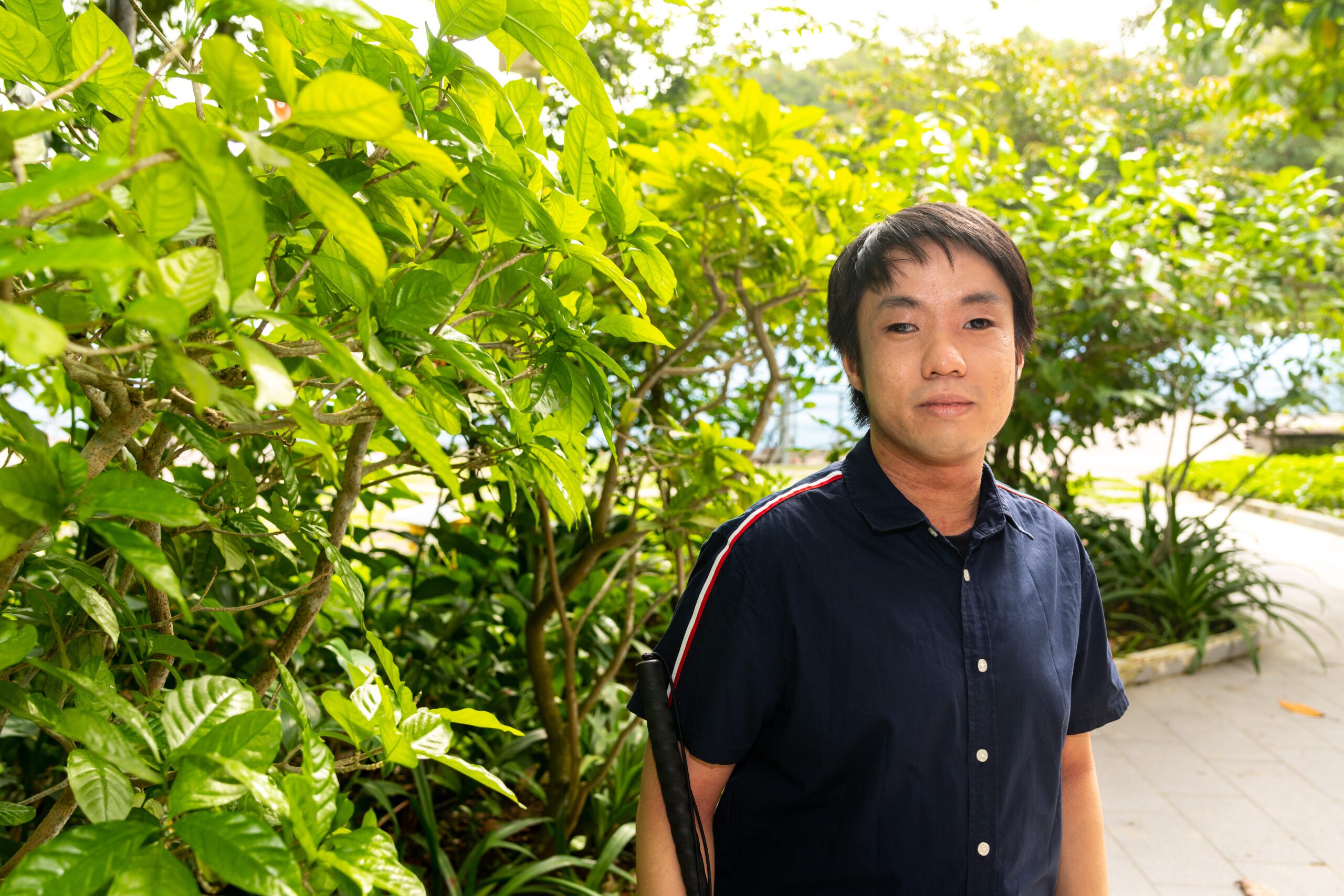Bingz, what is an HSP?
For an HSP, the sensitivity of the central nervous system and cognitive processing of external stimuli is much stronger and deeper. The wide-ranging stimuli can be emotional energies, the thoughts of passers-by, environmental noise, to name a few. I tend to be more sensitive to the emotional energies emanating from people around me. Growing up, I was discouraged from crying and so I learnt to numb my sensitivity when I couldn’t cry freely as an emotional outlet.
When I was doing my physiotherapy internship at a hospital, I worked with elderly patients who had walking difficulties. I could sense the pain of the patients, as well as the stress of the healthcare staff. I could feel people on the brink of death, and their energy leaving, and they would pass away shortly. It was very overwhelming. If someone was hurt in the hip or having digestive issues, I’d feel this rumbling and pattern of the energy. The energies were very dense, like they’re fixed and cannot be changed. Sometimes, the energies in a place, such as a hospital environment, can feel very heavy and gloomy, and may also have another layer of chaotic energies zigzagging in all directions.
The thing is, put anyone in the emergency room or a ward and he is likely to feel overwhelmed too. How is it different for an HSP?
Prior to my internship, I was already adequately trained on all the theoretical and practical aspects of my job scope, and I fared well in a classroom environment. But when I was in the hospital ward, even when it was a quiet and peaceful one, even when my classmates were relaxed and cheerful, I’d still burst out crying. I felt both heaviness in my chest. Panicky, I couldn’t focus on the simple tasks I needed to do to help my patients.
Though I had already been conditioned to numb my emotions throughout my childhood to my early twenties, I was still immensely affected by these intense emotions. If someone was angry with me, I’d feel like I was being punched in my chest. I’d need time to recover from this energetic blow.
Does this mean that HSPs have to live a life where they have to bear the weight of negative emotions?
A lot of times, for HSPs, we may detach energetically from our physical bodies to sense what’s going on. And when we do that, we are not fully connected. We are not grounded in ourselves. It doesn’t feel safe because we’re out of our bodies. So, it’s important to first come back to our physical bodies, to feel how we are reacting to others. For example, saying “I feel like you are judging me” is not a conveyance of an actual feeling. That is more of a thought. A true feeling can be “I feel sad in my chest”, or “I feel heavy in my shoulders”. What we feel can be emotions, or tangible sensations in certain parts of our physical bodies. Even saying “I feel numb” is an actual feeling too.
Is it all negative emotions? Do you experience moments of transcendence?
When I conduct interviews with other healers and coaches and transformational teachers, their presence alone is very moving. It’s not about their words; their entire presence just evokes my need to cry — but it’s a positive sensation. I feel touched that they are leading with integrity with their teaching, that their actions are aligned with their words and presence.
When did you learn about energy systems?
My first job was in the aircraft engineering industry — I held the title of ‘Continuous Improvement Executive’. My job was to use the Kaizen and Lean Six Sigma methodologies to streamline business efficiency. Fresh out of school, I was clueless about what I was doing. I was the only person in the five-hundred-strong company in charge of this task as well. My contributions and even my role itself felt unmeaningful. I took energy healing workshops over the weekends, and I began practising it on a few colleagues. The healing modality I learnt at that time was proactive. It takes a bit of imagination and being acutely aware of your breathing and sensing. You can send colours and symbols as a way of sending healing energies to someone. Helping someone relieve his pain, both emotional and physical, allowed me to feel lighter. I felt a much greater sense of achievement helping someone release physical and emotional pain than helping my company improve its productivity.
What is energy flow? And what causes energy blockage?
There’s always energy flowing through us. When we can align ourselves, when we can improve the flow within us, we can improve the rate of our natural healing abilities. We tend to get blocked in our energetic flows because of the way we react to things, people or situations. For the patients in the ward, I could sense that there was blockage in them. And their energies were dense.
As we grow older and get wiser, we learn to anticipate our emotional reactions and then curb them. Take for example, when someone intentionally tries to antagonise you — you try to control yourself so that you don’t erupt in anger. But it takes energy to repress that anger. And this is when your energy flow gets blocked.
But if someone is deliberately ruffling my feathers, isn’t it a good thing that I block the incipient anger lest it erupt?
Yes, but you don’t have to erupt in anger. You also don’t want to suppress this anger. It is already trapped in your body, and it’s so much better to feel all that you’re feeling, so you can process, release, and integrate this energy. Suppressing this emotion creates an energy blockage within you. In turn, the harmony in your body is disrupted. Over time, as you suppress anger and other negative emotions, there comes a time when you will erupt over the most trivial of matters because there’s so much in you that needs to be released. Most likely, you will take it out on your closest loved ones because it feels safest for you to be ‘real’ with them. In doing so, you hurt your relationships with the people who matter the most to you.
Naturally, we will react a certain way to the person who’s antagonising us. What we can do is to meet that person with more openness, and in that way, positively affect the other person. Think about it: we won’t approach monks and try to irritate them. Why not? Because they radiate such peaceful energy. And even if we tried to, they would likely not react, so our efforts would be futile. So, in the face of criticism, it is important to think whether it is worth it for you to have more open, more honest communication with the other party.
For example, you may feel stuck in a toxic company, working on projects that are meaningless to you and being surrounded by critical colleagues. Sometimes, the best consolation may be drastic, such as leaving it because it simply isn’t a good fit. If you tolerate the things that your colleagues do to you, resentment will build up. Eventually, you will vent it on someone whom you feel comfortable venting on, and this can be your parent, sibling or spouse. I think all of us are all immediately intuitive. If you keep your body light and free of this resentment, or of any stuck energy, it becomes easier for you to be intuitively guided. So, when we don’t try to block things out, it gets easier to receive messages on how we can honestly connect with other people.
I get what you’re saying, but at the same time, it’s a little idealistic, isn’t it? To say to just lean into your intuition and leave a job. It is easier said than done, especially for those who don’t have a security net.
Of course, there is the consideration of job security, but we don’t have to figure things out immediately. It’s also idealistic to assume that we will still have our jobs as long as we don’t quit. Our lives can change even when we are not making the changes. We also cannot anticipate major events such as a cancer diagnosis. We don’t have to create a plan for the next ten years. We can only take one step at a time. It is about trusting your inner guidance. The more we trust, the more we are gentle with ourselves, the more we love ourselves, the more able are we to take the necessary action.


